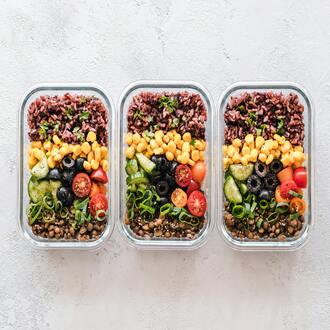Transcription Food supplements in the ketogenic diet
The ketogenic diet is a nutritional approach that has been shown to be effective for weight loss, improving metabolic health and promoting ketosis. However, due to the restrictive nature of this diet, some people may have difficulty obtaining all the nutrients they need from food alone.
This is where dietary supplements can play an important role in providing additional nutrients and ensuring that the body has everything it needs to function optimally during the ketogenic diet. In this session, we will explore the most common supplements used on the ketogenic diet, their benefits and considerations for proper use.
Electrolyte Supplements
One of the most important aspects to consider on the ketogenic diet is electrolyte balance. Due to reduced carbohydrate intake, the body may excrete more electrolytes through the urine, which can lead to imbalances and symptoms such as muscle cramps, fatigue and dizziness. Electrolyte supplements, such as sodium, potassium and magnesium, can help maintain proper balance and prevent these side effects.
Healthy fats and protein supplements
On the ketogenic diet, fats are the main source of energy, and it is important to make sure to get enough healthy fats in the diet. Some people may find it helpful to supplement with MCT (medium chain triglyceride) oils to increase ketone production and enhance fat burning.
Although the ketogenic diet is moderate in protein, some people may have difficulty meeting their protein needs through food alone. In these cases, protein supplements, such as whey or plant proteins, may be helpful to ensure adequate intake and support muscle function and recovery.
Fiber supplements
Due to carbohydrate restriction, fiber intake may decrease on the ketogenic diet, which can lead to digestion problems and constipation. Fiber supplements, such as psyllium, can be beneficial in maintaining optimal digestive health and promoting bowel regularity.
Benefits of supplements in the ketogenic diet
Facilitate ketosis: By providing additional nutrients and ensuring adequate intake of fats, protein and other essential nutrients, supplements can help facilitate ketosis and keep the body in a state of efficient fat burning.
Prevent nutritional deficiencies: The ketogenic diet can be restrictive in certain nutrients, and supplements can help prevent deficiencies and ensure that the body receives all the nutrients it needs to function properly.
Improve energy and performance: By ensuring adequate intake of electrolytes and healthy fats, supplements can improve energy levels and performance during the ketogenic diet, which can be especially beneficial for those who are physically active.
Considerations for proper use of supplements
Consult with a healthcare professional: Before beginning any supplementation on the ketogenic diet, it is important to consult with a healthcare professional or registered dietitian to determine which supplements are best suited for your individual needs and health goals.
Supplement quality: Be sure to choose high-quality supplements from reliable sources. Supplements should be free of unnecessary additives and third-party verified to ensure purity and efficacy.
Adjust according to your needs: Each person is unique, and nutritional requirements may vary. It is important to adjust supplements according to your individual needs and goals, and pay attention to how you feel in order to make the necessary changes.
Do not rely exclusively on supplements: Supplements should be used as a complement to a balanced diet and not as a substitute for proper nutrition. It is essential to follow a well-planned and varied ketogenic diet to get all the necessary nutrients from food.
food supplements




